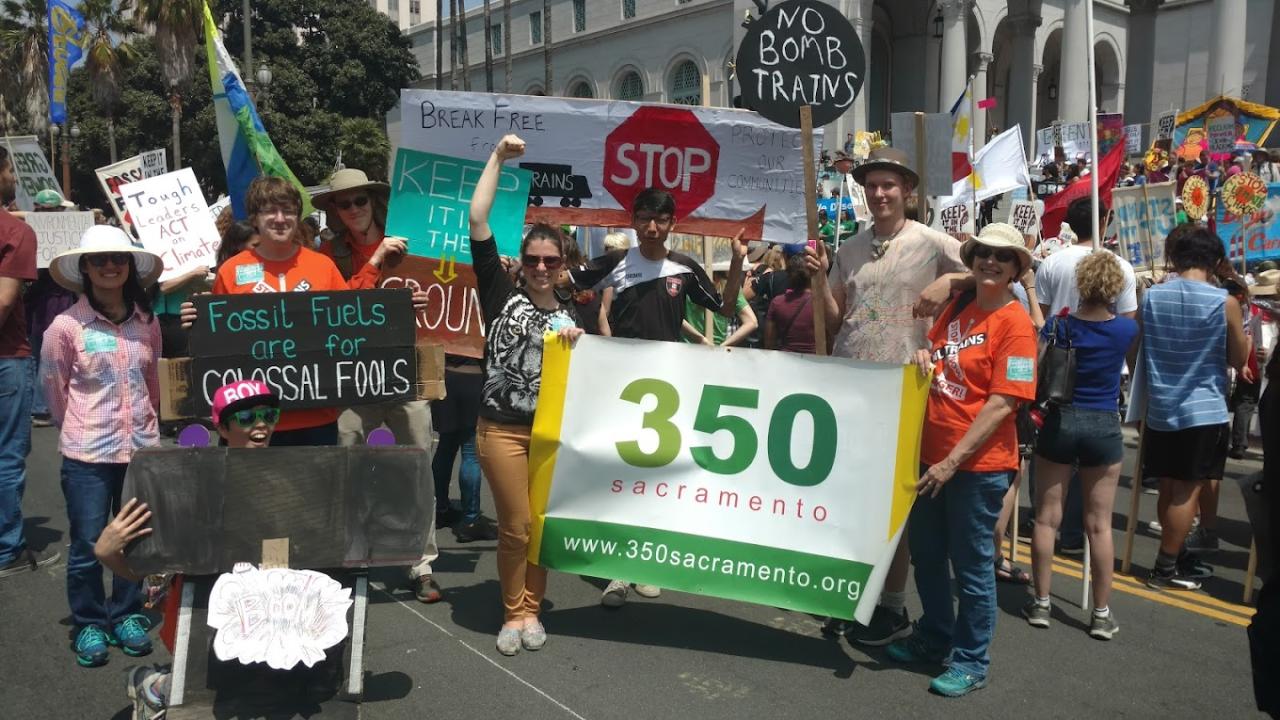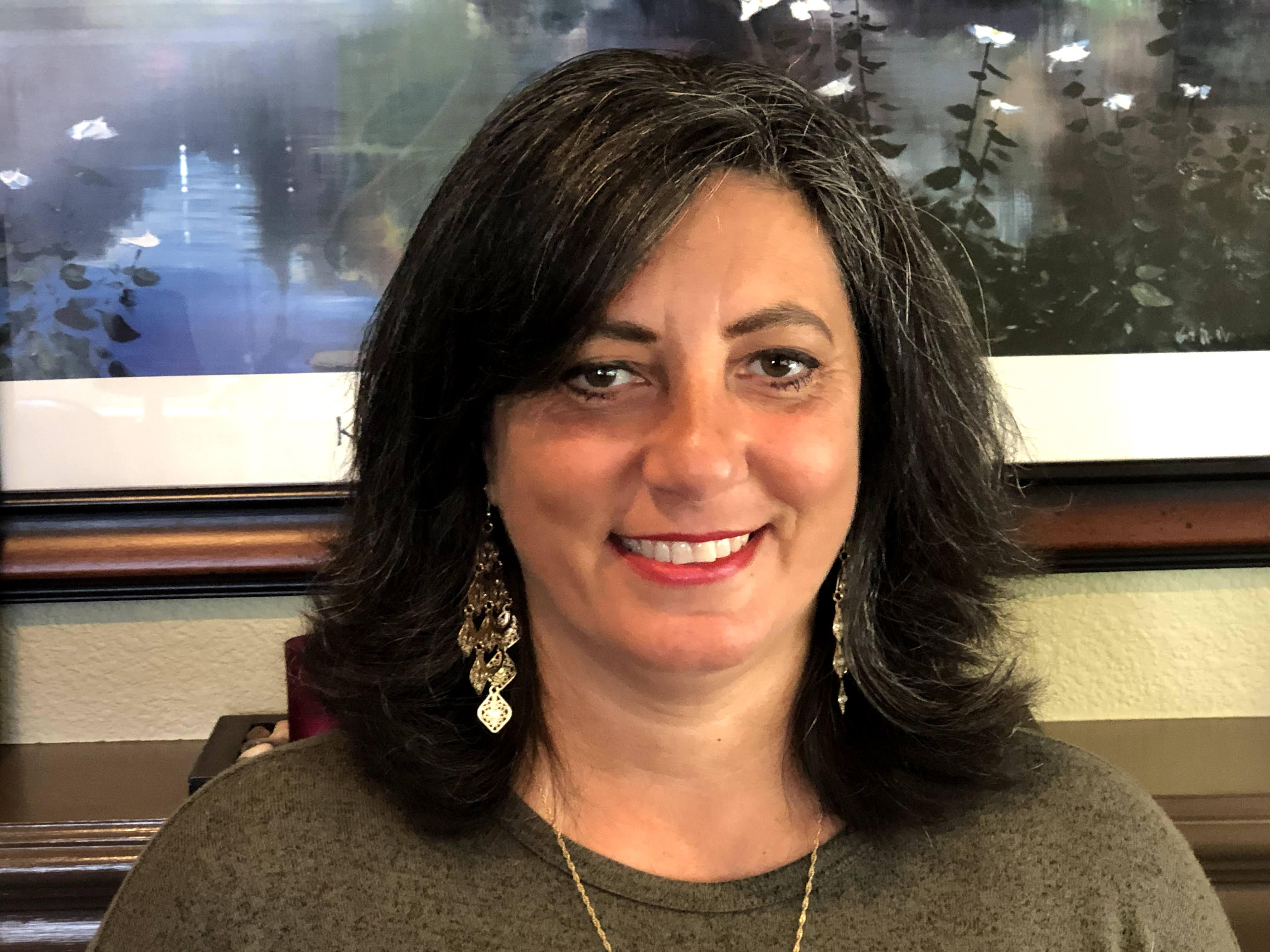
Joining Forces for a Sustainable Future: A Conversation with 350 Sacramento
350 Sacramento is one of 54 host sites for Sacramento Valley College Corps fellows. In this interview, Roula England, development and administrative director for 350 Sacramento, shares her insights about working with SVCC student fellows.
Can you tell us about your organization’s mission?
350 Sacramento is a local grassroots organization committed to equitable solutions that accelerate the transition to a sustainable future with atmospheric carbon dioxide levels below 350 parts per million (ppm) — the number that leading scientists say is the safe upper limit for carbon dioxide in our atmosphere.
What kind of communities do you serve?
We work with all communities because we all come from different backgrounds and have varying abilities, and we want to ensure that we address everyone in the community. We do not have hierarchies, and we are empowered to work together and serve the community at large. However, we also aim to focus on underserved communities. For instance, we purchased supplies for box fans and air filters and, with the help of volunteers and fellows, we’ve assembled and distributed them to help the underserved communities most affected by poor air quality due to smoke and wildfires.
Why did you become a SVCC host site?
We understand the experience of being students who want to learn skills and make a positive impact. What better place to do so than in a non-profit organization focused on climate action? We have a large portfolio that includes a number of various teams, allowing fellows to benefit from involvement in all areas and capacities in which we work.
We find that having new people on board is mutually beneficial. It allows us to gain new perspectives, while also helping fellows learn new skills that they can take with them. As someone who is primarily involved with the work they do, it’s a win-win.
What kind of work do your student fellows typically do, and how does it benefit both the fellows and your organization?
Typically, students have helped with the electrification team by translating SMUD's materials into different languages that are not currently available. They also work heavily on our marketing efforts, creating social media graphics, assisting with tabling events and posting about special events that are relevant to the community. Additionally, they conduct research and write blogs that can be posted on our website. These can cover a range of topics, such as community gardens, the effects of greenhouse gas emissions in the community and resources for people to tap into.
Can you share any success stories or notable projects that student fellows have worked on this year?
I previously mentioned that some students were excited about being a part of the air filters project, which has distributed close to 300 air filters to underserved communities. We aim to distribute another 300 in just a few more months.
Another part of their outreach is the SEAT program, which is student environmental activist training. Students can enroll in an 8-week, free cohort focused on climate action. After completion, graduates can become 350 Sacramento interns with paid stipend. Our current fellows reached out to different school districts, including those in Davis and Sacramento regions. They identified opportunities to go into middle and high schools to distribute flyers about the SEAT program.
Some of the fellows have teaching or tutoring backgrounds, and were excited to be a part of these special projects. Last month, we had an event called "Ode to Earth," and the students played a significant role in helping us with the auction events set-up, attending the spectacular performances by various artists and assisting with set-up. They also helped with social media promotion for the event.

What type of support and mentoring do you provide to fellows?
I like to focus on their interests, skill sets and strengths. First, I’ve asked them, early in the fellowship process, to provide me with specific areas they would like to serve with us. At the beginning, some of them were overwhelmed with the various teams we have. Others were able to share a PowerPoint Presentation about the work they have done in the past as college students. This was super helpful in assigning them to the right areas to flourish. Others, who were visual learners, were very resourceful, and were able to learn on their own. One fellow learned how to use WordPress to update our website. Now, they are all creating and developing Standard Operating Procedures (SOP) to make available to our incoming fellows, to help streamline the on-going tasks. Learning something new and managing it so well is a great achievement.
Support is given wherever they feel they can thrive. If they don't ask for help, I encourage them to come out of their comfort zone and try something new. For example, some fellows have exceeded all expectations in all assigned tasks. Therefore, I honed in on their strengths, by asking them to train other fellows; and thus, have become mentors for one another. This process helps them increase their self-esteem and self-confidence, while giving them affirmation that what they do with us is meaningful.
About SVCC
UC Davis is proud to be among the 45 campuses selected for the inaugural #CaliforniansForAll College Corps program. UC Davis, along with Sacramento State, Sacramento City College and Woodland Community College, form the regional Sacramento Valley College Corps, or SVCC. A key element of this program are local community-based organizations and government agencies who host student fellows during the academic year.
